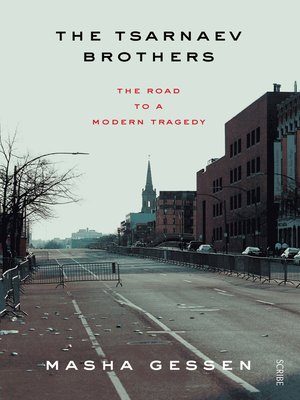
Sign up to save your library
With an OverDrive account, you can save your favorite libraries for at-a-glance information about availability. Find out more about OverDrive accounts.
Find this title in Libby, the library reading app by OverDrive.



Search for a digital library with this title
Title found at these libraries:
| Loading... |
A riveting search for the roots of terrorism by the bestselling author of The Man Without a Face.
The facts of the tragedy are established: on 15 April 2013, two homemade bombs exploded near the finish line of the Boston Marathon, killing three people and wounding 264 others. The elder of the brothers implicated in the attack, Tamerlan Tsarnaev, died in the ensuing manhunt; Dzhokhar's trial got underway in early 2015. What we don't know is why. How did such a nightmare come to pass?
Award-winning Russian journalist Masha Gessen draws on her unique insight and credentials to deliver a powerful story of dislocation, and the longing for clarity and identity that can reach the point of combustion. She reconstructs the struggle between assimilation and alienation that fuelled the Tsarnaev brothers' apparent metamorphosis into a new breed of homegrown terrorist, with their feet planted on American soil but their loyalties elsewhere — a split identity that seems to have incubated a deadly sense of mission.
PRAISE FOR MASHA GESSEN
'Masha Gessen does something unexpected ... In a book about Tamerlan and Dzhokhar Tsarnaev and their role in the 2013 Boston Marathon bombing, she barely describes the crime ... Still, if such an approach seems counterintuitive, that's the power of this remarkable book' The Los Angeles Times
'This tale of immigrant ambition gone wrong is well told by the Russian-American journalist Masha Gessen ... The backstory of family dysfunction and dislocation stretching back to Stalin makes this an important work on the psychology of sectarian violence.' The Times Literary Supplement






